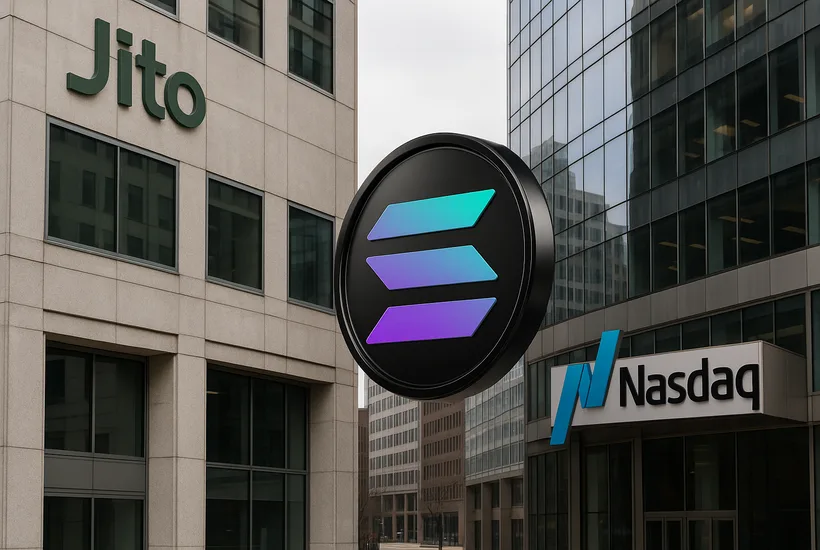Jito Labs has introduced a proposal for a Block Assembly Marketplace (BAM), a groundbreaking system aimed at turning Solana into a “decentralized Nasdaq”. The system will enable advanced order types, such as central-limit books, perpetuals, and dark pools, without altering the core protocol.
What is Block Assembly Marketplace (BAM)?
BAM is a modular architecture with three key elements, mainly Nodes, Validators and Plugins. The BAM Nodes are like Scheduler nodes that operate within Trusted Execution Environments (TEEs). They sequence encrypted transactions privately to reduce MEV attacks like front-running. Next are the Validators that are running the updated Jito‑Solana clients which execute the sequenced bundles and generate cryptographic proofs verifying correct order execution.
Finally, there are the Plugins, these are developer tools that allow custom sequencing logic—such as priority cancel‑replace, just‑in‑time oracle feeds, or liquidity provider speed bumps—with associated fee-sharing between apps, node operators, validators, stakers, and the Jito DAO.
The Block Assembly Marketplace proposal includes private orders until execution, a public audit trail of every ordered bundle, and scheduling logic through Plugins.
The rollout strategy
Jito Labs will manage the first BAM nodes, then onboard an alpha group of validators, including Triton One, Figment, Helius, SOL Strategies. The expanded delegation will take up ~30% stake share. The system aims to scale to 50–100 nodes, and then open-source the code later in 2025. It plans to gradually hand over governance and fee control to the Jito DAO eventually. Mainnet testing is expected in the coming weeks, with full deployment following community feedback and production-grade trials.
How will SOL be impacted?
By providing programmable blockspace, BAM promises more efficient, fairer transaction execution. The enhanced transparency and speed have already sparked bullish sentiment. On July 22, SOL crossed $200 following BAM’s unveiling. For SOL token holders, this could promote greater network utility and demand, as developers migrate trading primitives on-chain. The plugin-driven revenue model may also redirect value into staking, potentially boosting SOL’s tokenomics.



